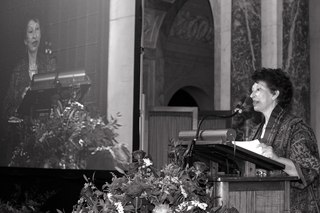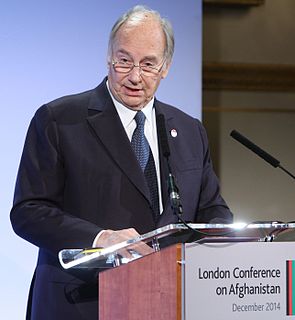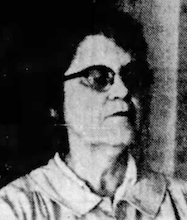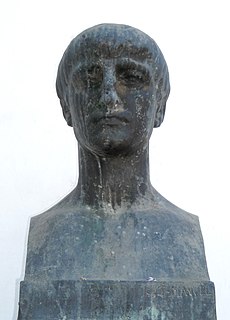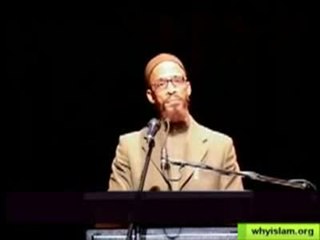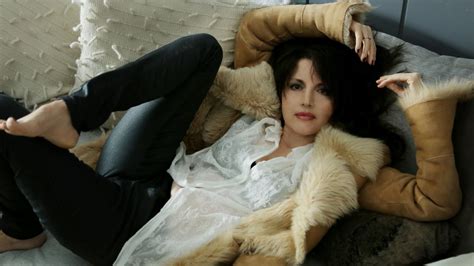A Quote by Fatema Mernissi
While Muslim men describe themselves as insecure in their harems, real or imagined, Westerners describe themselves as self-assured heroes with no fears of women. The tragic dimension so present in Muslim harems - fear of women and male self-doubt - is missing in the Western harem.
Related Quotes
The creed of our democracy is that liberty is acquired and kept by men and women who are strong and self-reliant, and possessed of such wisdom as God gives mankind - men and women who are just, and understanding, and generous to others - men and women who are capable of disciplining themselves. For they are the rulers and they must rule themselves.
If you look at most women's writing, women writers will describe women differently from the way male writers describe women. The details that go into a woman writer's description of a female character are, perhaps, a little more judgmental. They're looking for certain things, because they know what women do to look a certain way.
The Muslim world, with its history and cultures, and indeed its different interpretations of Islam, is still little known in the West. The two worlds, Muslim and non-Muslim, Eastern and Western, must, as a matter of urgency, make a real effort to get to know one another, for I fear that what we have is not a clash of civilisations, but a clash of ignorance on both sides.
Men look at women. Women watch themselves being looked at. This determines not only most relations between men and women but also the relation of women to themselves. The surveyor of woman in herself is male: the surveyed female. Thus she turns herself into an object - and most particularly an object of vision: a sight.
When people, particularly young people and especially young men, can't imagine themselves as heroes in narratives that they construct for themselves, they look to be heroes in some other way. So young men in America of, let's say, Muslim background, only a tiny, tiny minority - so small as to be almost zero - are likely to ever commit terrorist acts.
If you look at most womens writing, women writers will describe women differently from the way male writers describe women. The details that go into a woman writers description of a female character are, perhaps, a little more judgmental. Theyre looking for certain things, because they know what women do to look a certain way.
The bonding of women that is woman-loving, or Gyn/affection, is very different from male bonding. Male bonding has been the glue of male dominance. It has been based upon recognition of the difference men see between themselves and women, and is a form of the behaviour, masculinity, that creates and maintains male power… Male comradeship/bonding depends upon energy drained from women.
it is not men that most women worry about when they rise to the defense of the status quo. Their apparent endorsement of male supremacy is, rather, a pathetic striving for self-respect, self-justification, and self-pardon. After fifteen hundred years of subjection to men, Western woman finds it almost unbearable to face the fact that she has been hoodwinked and enslaved by her inferiors - that the master is lesser than the slave.
Let’s not ask Barbara Walters about how Muslim women feel. Let’s not ask Tom Brokaw how Muslim women feel. Let’s not ask CNN, ABC, FOX, The London Times, or the Australia Times. Let’s not ask non-Muslims how Muslim women feel, how they live, what are their principles, and what are their challenges. If you want to be fair, ask a Muslim woman. Ask my wife. Ask my mother. Ask a Muslim woman who knows her religion, who has a relationship with her Creator, who is stable in her society, understands her responsibilities. Ask her.
When we consider that each of us has only one life to live, isn’t it rather tragic to find men and women, with brains capable of comprehending the stars and the planets, talking about the weather; men and women, with hands capable of creating works of art, using those hands only for routine tasks; men and women, capable of independent thought, using their minds as a bowling-alley for popular ideas; men and women, capable of greatness, wallowing in mediocrity; men and women, capable of self-expression, slowly dying a mental death while they babble the confused monotone of the mob?
The self-esteem of western women is founded on physical being (body mass index, youth, beauty). This creates a tricky emphasis on image, but the internalized locus of self-worth saves lives. Western men are very different. In externalizing the source of their self-esteem, they surrender all emotional independence. (Conquest requires two parties, after all.) A man cannot feel like a man without a partner, corporation, team. Manhood is a game played on the terrain of opposites. It thus follows that male sense of self disintegrates when the Other is absent.
In the wars against Revolutionary and Napoleonic France, as in so many later conflicts, British women seem to have been no more markedly pacifist than men. Instead, and exactly like so many of their male countrymen, some women found ways of combining support for the national interest with a measure of self-promotion. By assisting the war effort, women demonstrated that their concerns were by no means confined to the domestic sphere. Under cover of a patriotism that was often genuine and profound, they carved out for themselves a real if precarious place in the public sphere.
